Features
TUNISIA ON RAZOR'S EDGE
After the Assassination of Chokri Belaid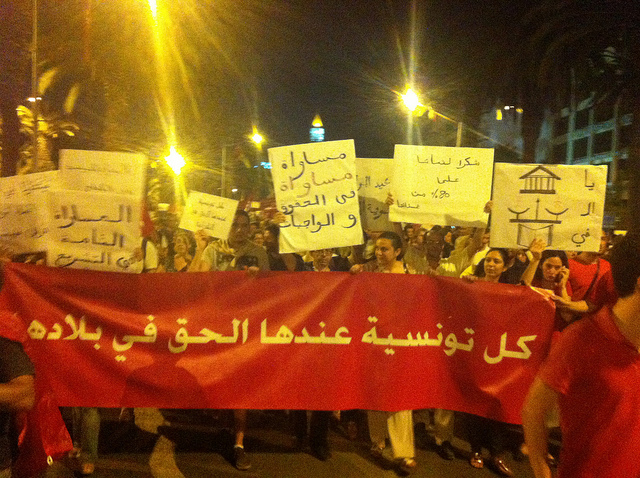 by Kevin Anderson, International Marxist-Humanists
by Kevin Anderson, International Marxist-Humanists
The assassination of leftist leader Chokri Belaid on February 6, apparently by Islamists, has brought into the open the long-simmering conflict that has pitted the ruling Islamist Ennahda Party against progressives, trade unionists, and secularists, who have staged the first general strike in 40 years and the largest street demonstrations since the 2011 revolution. – Editors
STRUGGLE FOR LAND AND WATER IN THE ANDES
Campesinos Stand Up to the Mineral Oligarchy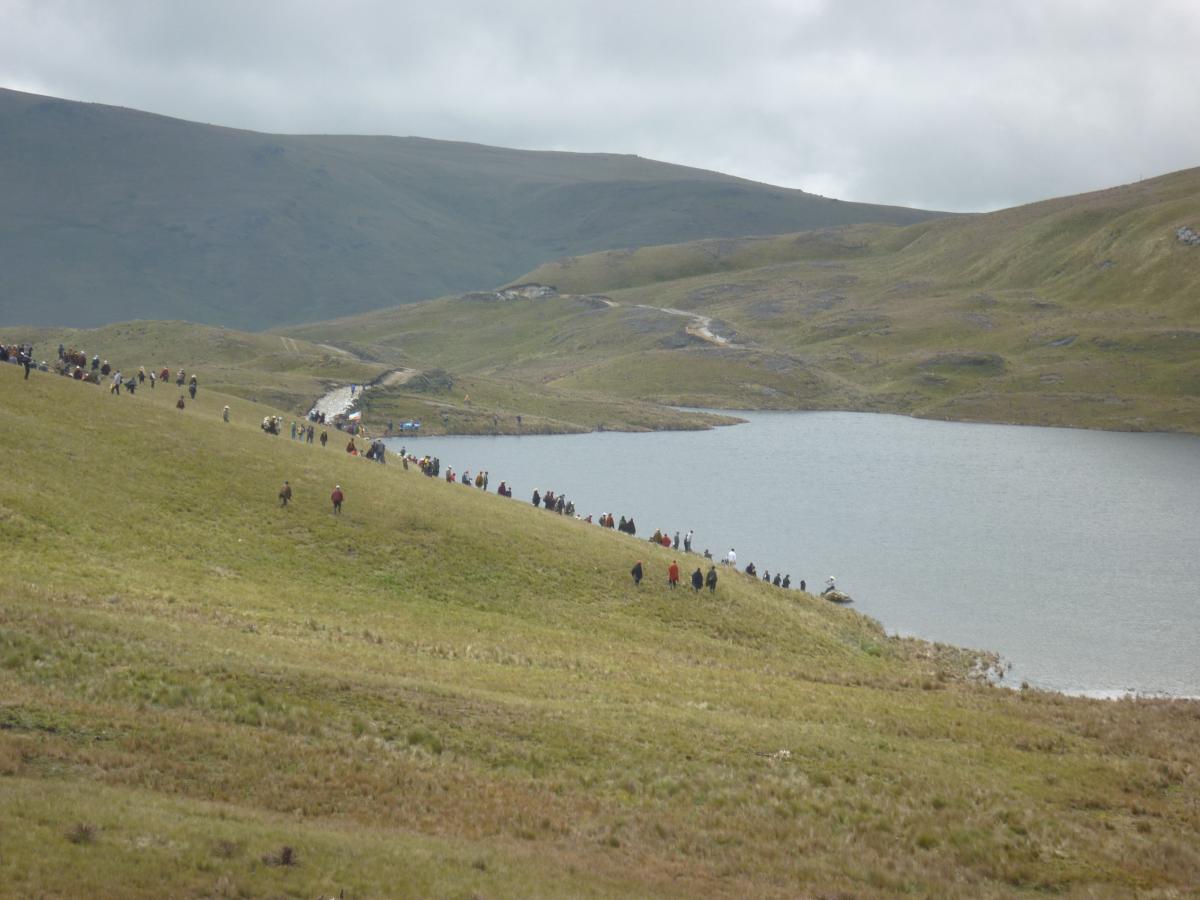
by Bill Weinberg, WIN Magazine
In what has become an emblematic struggle against government plans to open peasant lands to mineral interests throughout the sierras of Peru, local campesinos continue to hold strikes and protests in the northern region of Cajamarca—in defiance of a state of emergency and a heavy presence of army and National Police troops.
The months-long campaign to halt the mega-scale Conga gold mine high in Cajamarca's alpine zone—which Colorado-based Newmont Mining hopes to develop with Peruvian partners and investment from the World Bank—cost five lives last July 3 and 4, when government troops opened fire on protesters in the rural towns of Celendín and Bambamarca. The youngest of the fallen was only 17 years old.
STRATEGIES OF A NEW COLD WAR
US Marines and the Drug War in Guatemala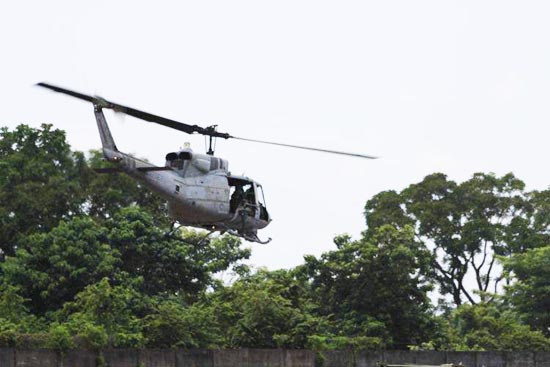
by Dawn Paley, Toward Freedom
GUATEMALA CITY — The news broke in the United States during the lazy summer days of late August: 200 US Marines were stationed in Guatemala as part of the war on drugs. The deployment of US combat troops to Guatemala was part of Operation Martillo, a military plan meant to disrupt cocaine trafficking routes that pass through Central America on their way from Colombia to the United States.
IRAQ: NO FUTURE FOR AL-QAEDA'S CHILDREN
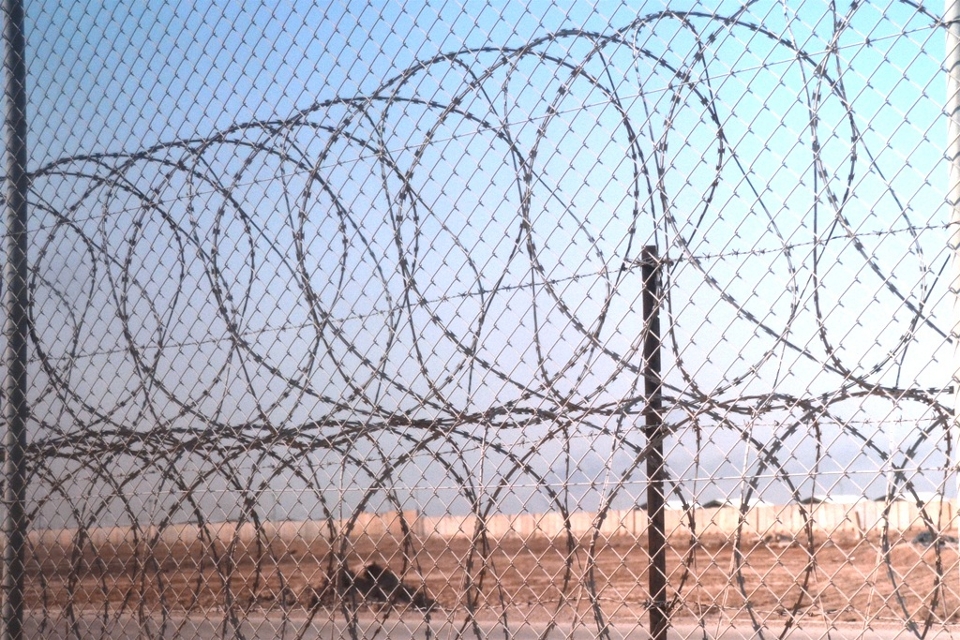 from IRIN
from IRIN
BAQUBA — Near a swamp of sewage in a slum in eastern Iraq, six-year-old Amir plays soccer with friends, unaware of a fact that may continue to affect him for the rest of his life: His father—killed four months before he was born—was a senior leader within al-Qaeda.
Like dozens of other children of insurgents in Diyala province, Amir's birth was not registered. He has no documentation, no citizenship, no access to government services and, his mother fears, no future.
THE SANDSTORM OF WAR IN NORTHERN MALI
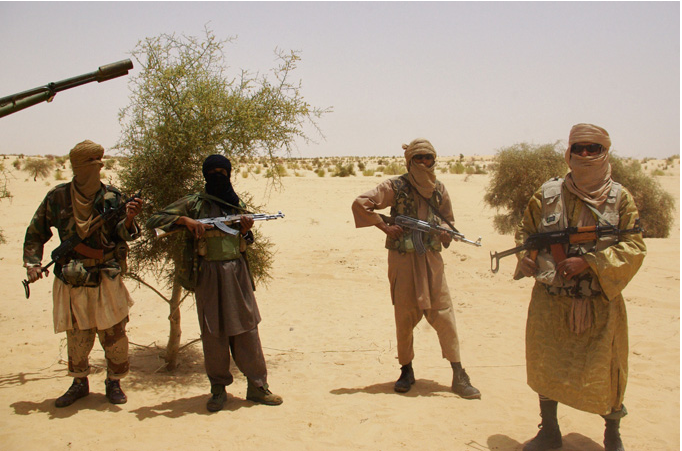
by Andy Morgan, Jan. 11
The situation along the demarcation line that separates Islamist-held northern Mali from the south of the country is agonizingly confusing. The Malian army claim to have recaptured the strategic town of Douentza, while the Islamist claim the complete opposite. According their spokesperson, the bearded Sanda ould Boumama, the combined forces of AQIM, Ansar ud-Dine and MUJAO have pushed the Malian army back at least as far as the small town of Konna, if not further. Meanwhile France has mobilized some elite troops from a base in Chad and sent them to Sevaré, the town on the main east-west highway that serves as a transport hub for the Mopti region. The idea of Islamists capturing Mopti itself, Mali’s second largest city which is now dangerously close to the frontline, would be an A-grade nightmare not only for Mali but also for France and the international community. France has spent the last few months trying to persuade the US and the UN that need for action in northern Mali is urgent, without a great deal of success. There are also reports of an aerial bombardment of Konna although whether it was carried out by France or by Ukranian mercenaries isn't entirely clear.
THE DARK SIDE OF WIKILEAKS: REVISITED
Julian Assange, Ecuador, and the Belarus Connection
by Bill Weinberg, Al Jazeera
Aliaksandr Barankov is breathing easier, after Ecuador's highest court on August 28 rejected a request for his extradition to Belarus—the country known as "Europe's last dictatorship," facing international isolation for its harsh repression. Barankov, a former police investigator from the ex-Soviet republic, was granted asylum by Ecuador in 2010, after he was charged with fraud and extortion in his homeland—charges he claimed were bogus, and brought in retribution for having exposed a petrol-smuggling ring implicating high officials of President Alexander Lukashenko's regime. Barankov said he feared for his life should he be sent back home. An extradition request by Belarus was refused last October.
But on June 7, Barankov was arrested at his home in Quito, and imprisoned while Ecuador's courts reviewed a new extradition request from Lukashenko's government. Shortly thereafter, probably not coincidentally, Lukashenko visited Quito and signed various cooperation pacts with Ecuador's President Rafael Correa. "Everything changed after Lukashenko came," Barankov told the Associated Press by phone from his Quito prison cell.
Barankov should soon be free again, and the high court's ruling is a testament to the independence of Ecuador's judiciary. However, his case probably would have received little international attention if it did not come just as Ecuador has granted diplomatic asylum to Julian Assange, the controversial mastermind of WikiLeaks, which has aroused the ire of Washington with its release of thousands of classified US diplomatic cables. And few media reports have noted the special irony in the juxtaposition of the Assange and Barankov cases: a rights group is demanding a full accounting from WikiLeaks on claims that it may have actively collaborated with the Belarus dictatorship.
ENVIRONMENTAL DISSONANCE
Global Warming and Bolivia's Kallawaya Healers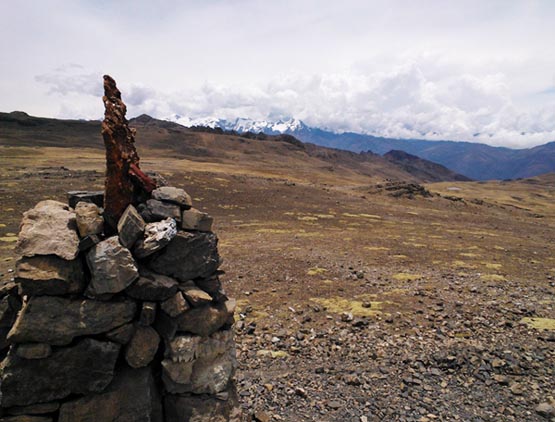
by Dylan Harris, Upside Down World
LA PAZ — As the global climate change discourse heated up in Doha at the COP18, the lived reality of climate change was becoming more apparent in some of the world’s most vulnerable ecosystems. In Bolivia, a country unfortunately well acquainted with the effects of global warming, the COP discourse is more relevant now than ever.
Villages nested in the craggy peaks of the Cordillera Apolobamba of Northern Bolivia house the centuries-old Kallawaya healing tradition. A few weeks ago, I was conducting field research in the Apolobamba region of Northern Bolivia, walking from village to village and discussing agriculture and climate change with locals.
INDIA: TIBETANS MARCH FOR HUMAN RIGHTS
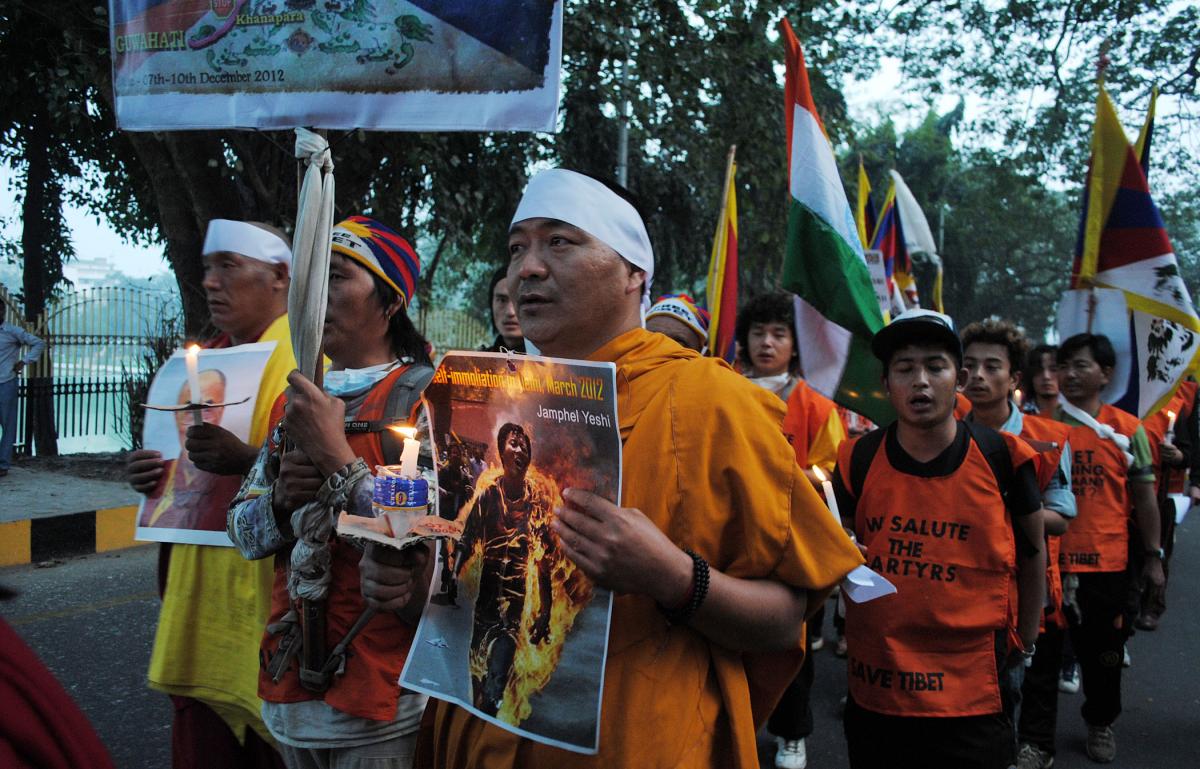
by Nava Thakuria, World War 4 Report
GUWAHATI — Tibetans across the globe celebrated the 64th World Human Rights Day on Dec. 10 with a new spirit. What was hailed as a Global Solidarity Day for Tibet was most widely observed by Tibetan exiles in India. Hundreds of Tibetans living in northeast India assembled in Guwahati, capital of Assam state, to raise their voices against the rampant violation of rights in Tibet by Chinese authorities. Cross-country marches by Tibetan protesters converged on the city from towns across northeast India, including Shillong, Tezu, Itanagar, Dimapur, Kohima and Tenzing Gang. They were unanimous in expressing profound grief that over 90 freedom-loving Tibetans have self-immolated over recent months.















Recent Updates
1 day 2 hours ago
1 day 2 hours ago
1 day 2 hours ago
4 days 5 hours ago
1 week 2 days ago
1 week 2 days ago
1 week 3 days ago
1 week 3 days ago
1 week 4 days ago
1 week 4 days ago